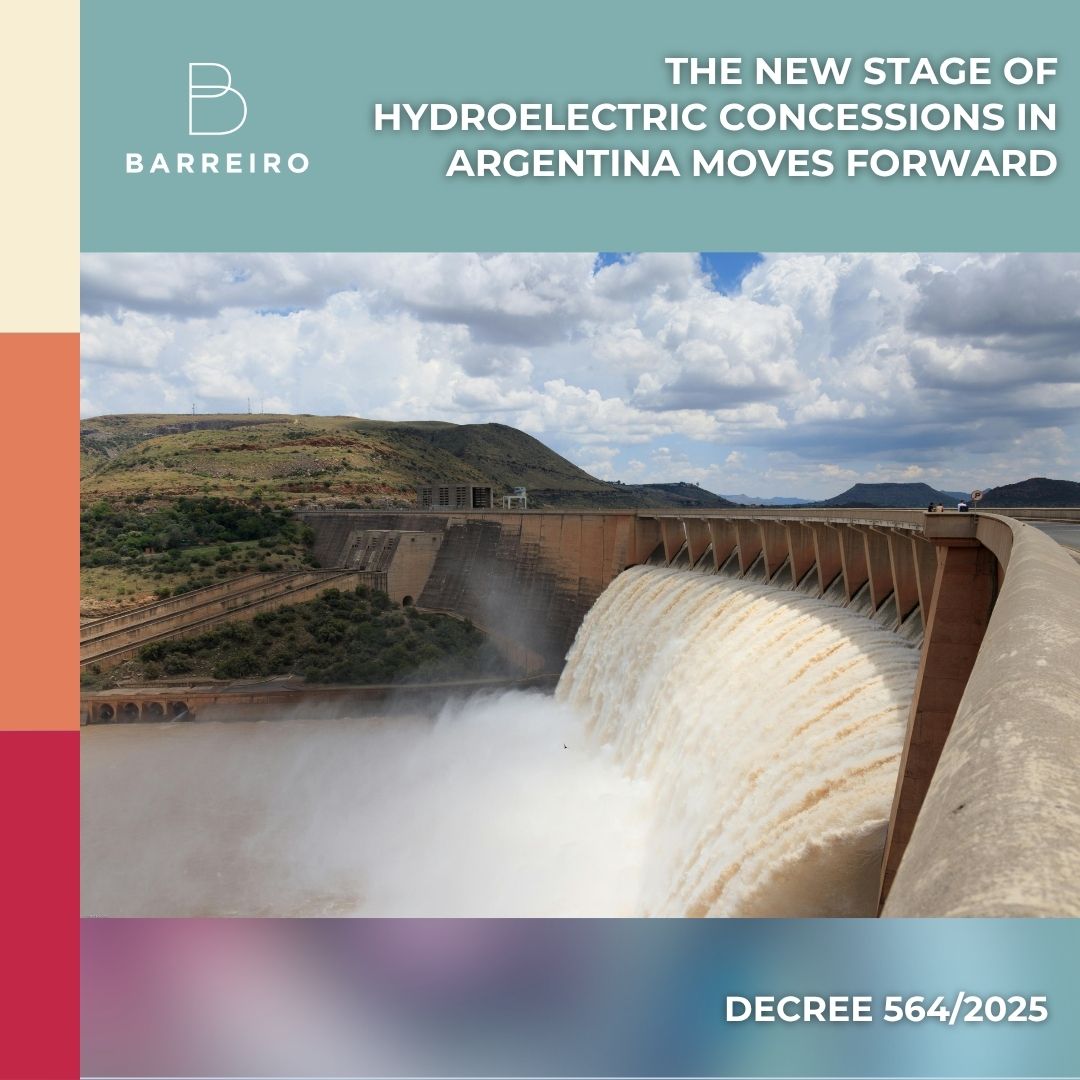The new stage of hydroelectric concessions in Argentina moves forward – Decree 564/2025

ANALYSIS OF DECREE 564/2025
1. Regulatory context and background
The Decree is part of a broader process of reorganization and privatization of public companies established by Laws No. 15,336 (electricity regulatory framework), No. 23,696 (State Reform), No. 24,065 (Electricity Regulatory Framework), and No. 27,742 (Bases Law 2024).
Following the expiration of the concession contracts for the Alicurá, El Chocón, Cerros Colorados, and Piedra del Águila hydroelectric dams, the National Government defines a new management scheme, operational transition, and transfer to private capital.
2. Main points of the decree
a. Transfer and sale of assets
Authorization is granted for:
-
The transfer of shares of the four newly created hydroelectric companies (one for each complex) from ENARSA to the Secretariat of Energy.
-
The subsequent sale of these shares through a national and international public tender without a reserve price, in accordance with Law No. 23,696.
This sale does not include employee ownership programs or regional preferences.
b. Temporary extension of current concessions
The current concessionaires (AES Alicurá, Enel El Chocón, Central Puerto, Orazul) will continue operating until December 31, 2025, or until the tender is awarded, whichever comes first. This requires signing a letter of adherence within 5 days of the Decree’s entry into force.
If the letter of adherence is not signed, the companies must continue operating for a minimum of 90 business days to ensure continuity of electricity supply.
c. Operating conditions during the extension
Concessionaires that adhere must:
-
Maintain all original contractual obligations.
-
Keep a compliance guarantee of USD 4,500,000 in effect.
-
Continue paying royalties to the provinces of Río Negro and Neuquén.
-
Allow visits by prospective bidders.
-
Transfer inventories and key assets according to the schedule.
d. Call for tender and conditions
Within 60 calendar days, the Ministry of Economy must call for a national and international public tender without a reserve price, for the sale of the majority shares of the concessionaire companies.
The bidding terms must include at least:
-
Concession contracts.
-
Environmental regulations.
-
Water management rules.
-
Investment obligations.
-
Technical operating conditions.
3. Political and economic purpose
The decree aims to:
-
Ensure the continued operation of dams that are key to the national energy system.
-
Comply with the privatization mandate of ENARSA provided in the Bases Law.
-
Guarantee a competitive, transparent, and agile process to attract national and international private investment.
4. Key legal aspects
-
The role of the Ministry of Economy as the enforcement authority is reaffirmed.
-
The process is framed within the reserve-free public tender mechanisms provided by Law No. 23,696.
-
Local preferences and worker participation programs are eliminated.
-
Compliance with Law No. 24,065 regarding concentration and competition limits is safeguarded.